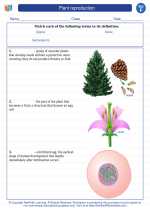Decomposers
Decomposers are a crucial part of the ecosystem, playing a vital role in breaking down organic matter and recycling nutrients. They are organisms that feed on dead and decaying organic material, such as fallen leaves, dead animals, and plant remains. Decomposers are essential for the process of decomposition, which involves the breakdown of complex organic matter into simpler compounds, releasing nutrients back into the soil, water, and air.
Types of Decomposers
There are various types of decomposers, including:
- Bacteria: These microscopic organisms are responsible for breaking down organic matter into simpler compounds through the process of decomposition.
- Fungi: Fungi, such as mushrooms and molds, play a crucial role in decomposing organic matter, particularly in forest ecosystems.
- Earthworms: Earthworms are important decomposers in soil, as they consume and break down organic material, aerate the soil, and facilitate nutrient cycling.
- Insects: Insects like beetles, ants, and flies are also important decomposers, feeding on dead plants and animals and accelerating the decomposition process.
Role of Decomposers
Decomposers play several important roles in the ecosystem:
- Nutrient Recycling: By breaking down organic matter, decomposers release essential nutrients such as carbon, nitrogen, and phosphorus back into the soil, making them available for plant uptake.
- Waste Management: Decomposers help in the decomposition of waste material, cleaning up the environment and preventing the accumulation of organic debris.
- Soil Formation: Decomposers contribute to the formation of fertile soil by breaking down organic matter and incorporating it into the soil, improving its structure and fertility.
- Energy Flow: Decomposers transfer energy from dead organisms to the soil and microbial communities, sustaining the flow of energy through the food web.
Study Guide
Here are some key points to remember about decomposers:
- Define decomposers and describe their role in the ecosystem.
- List and explain the types of decomposers, including bacteria, fungi, earthworms, and insects.
- Discuss the importance of decomposers in nutrient recycling and soil formation.
- Explain how decomposers contribute to waste management and energy flow in the ecosystem.
- Give examples of decomposers and their habitats.
Understanding the significance of decomposers is crucial for comprehending the interconnectedness of living organisms and the environment. By studying decomposers, we gain insight into the essential processes that sustain life on Earth.
.◂Science Worksheets and Study Guides Sixth Grade. Plant reproduction
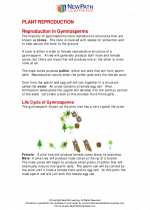
 Activity Lesson
Activity Lesson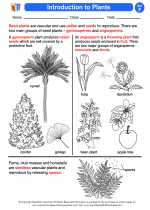
 Worksheet/Answer key
Worksheet/Answer key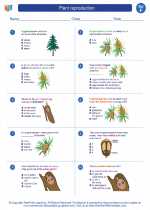
 Worksheet/Answer key
Worksheet/Answer key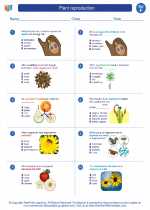
 Worksheet/Answer key
Worksheet/Answer key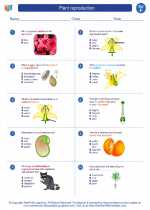
 Vocabulary/Answer key
Vocabulary/Answer key